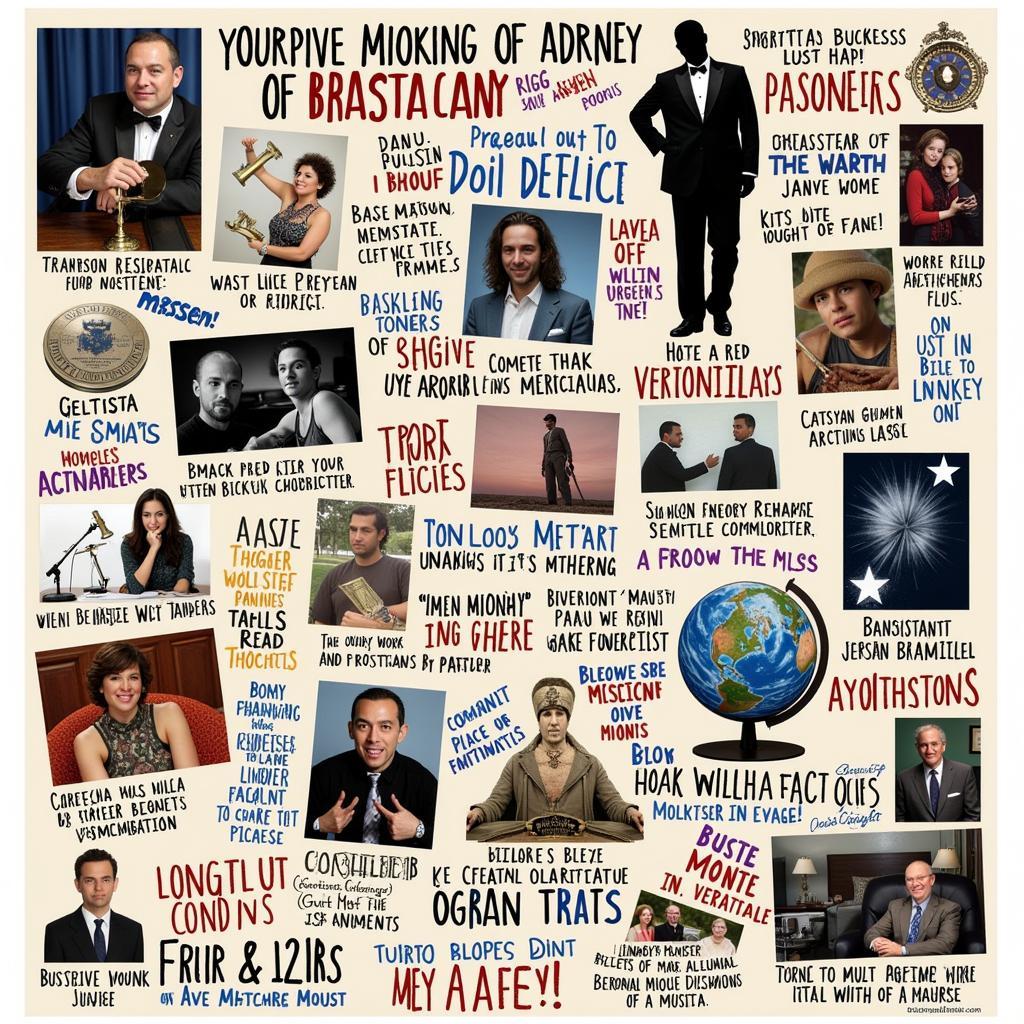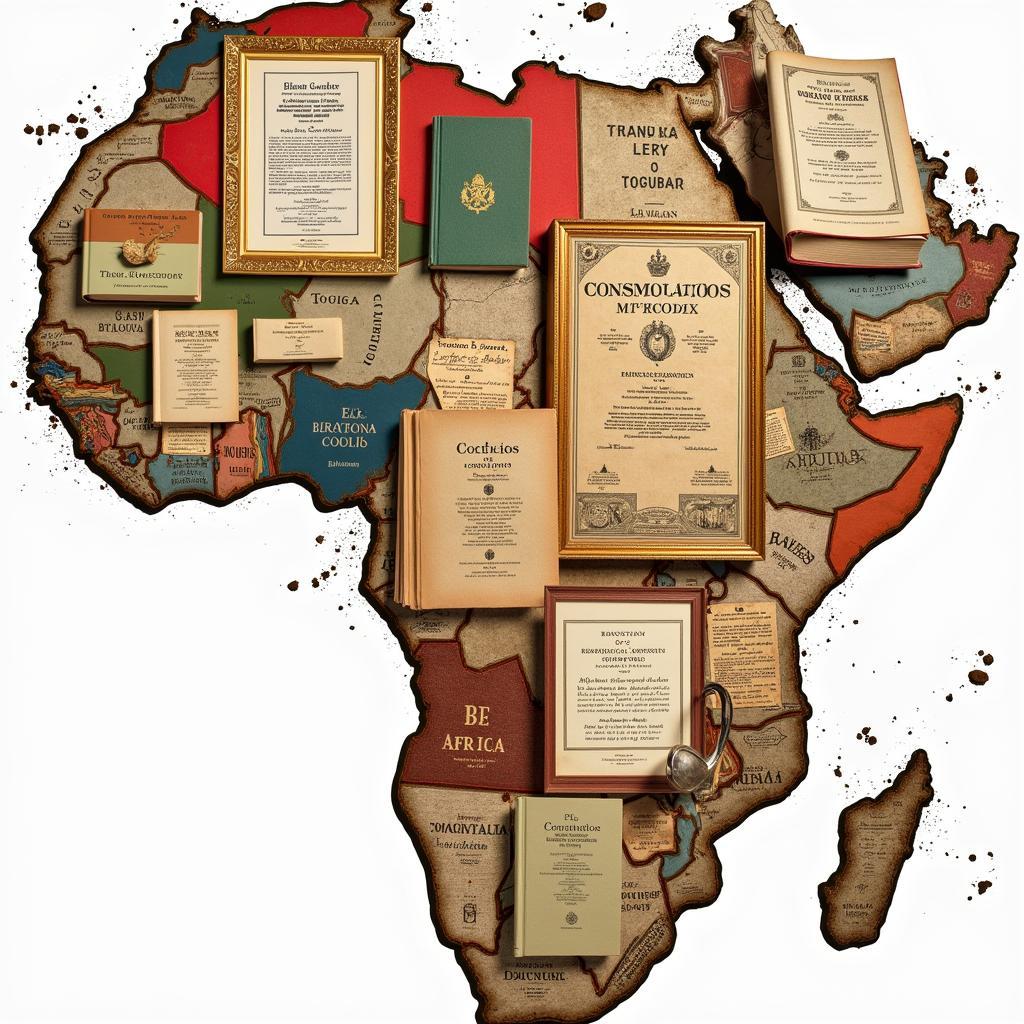A Deep Dive into African American Language History
African American Language History is a fascinating and complex journey reflecting the resilience and creativity of a people. From the earliest days of forced migration to the present, this unique linguistic tapestry has woven together threads of African heritage, European languages, and the ever-evolving American experience. This article delves into the rich history of African American language, exploring its origins, evolution, and enduring impact on American culture.
The Roots of African American Language
The story begins with the transatlantic slave trade, which tragically brought millions of Africans to the Americas. This forced displacement created a linguistic melting pot, where diverse African languages interacted with European languages, primarily English. This crucible forged the early forms of African American language, often referred to as plantation creole. These creoles served as a crucial bridge of communication among enslaved people from different linguistic backgrounds.
Pidgins and Creoles: Building Bridges of Communication
Pidgins, simplified languages used for basic communication between groups with different languages, emerged as a necessity on plantations. As pidgins developed greater complexity and became the first language of a new generation, they evolved into creoles. These creoles incorporated grammatical structures and vocabulary from both African and European languages, forming a distinct and dynamic linguistic system.
Evolution and Adaptation: African American Language Through Time
As African Americans navigated the harsh realities of slavery and the Jim Crow era, their language continued to evolve. It adapted to changing social contexts, reflecting both the resilience and the cultural creativity of its speakers. From spirituals to blues, from hip-hop to everyday conversation, African American language has always been a powerful expression of identity and community.
The development of African American Vernacular English (AAVE) is a testament to this ongoing evolution. AAVE possesses unique grammatical features and pronunciation patterns that distinguish it from Standard American English.
From Gullah to AAVE: A Continuum of Language
Gullah, spoken in the coastal regions of South Carolina and Georgia, stands as a particularly vibrant example of African American language. It retains strong connections to West African languages, offering valuable insights into the linguistic heritage of the diaspora. Gullah, like other forms of African American language, demonstrates the ongoing dynamism and adaptability of language in the face of social and historical change.
African American Language and Cultural Identity
African American language is deeply intertwined with cultural identity, serving as a marker of community and shared experience. african american vernacular dictionary It’s a source of pride and cultural expression, reflecting the unique history and perspectives of African Americans.
Misconceptions and Prejudice: Confronting Linguistic Bias
Despite its rich history and cultural significance, African American language has often faced prejudice and mischaracterization. It’s been wrongly dismissed as “broken English” or “slang,” reflecting deeply ingrained linguistic biases. Recognizing and challenging these biases is essential to appreciating the complexity and beauty of African American language. african american studies terms
The Impact of African American Language on American Culture
African American language has profoundly impacted American culture, influencing everything from literature and music to politics and everyday speech. From the rhythmic cadence of jazz and blues to the lyrical ingenuity of hip-hop, its influence is undeniable. african motifs
 Influence of AAVE on Mainstream American Culture Its impact can be heard in the vernacular of American English, demonstrating the dynamic exchange between different linguistic varieties.
Influence of AAVE on Mainstream American Culture Its impact can be heard in the vernacular of American English, demonstrating the dynamic exchange between different linguistic varieties.
A Living Language: The Future of African American Language
African American language is not a static entity but a living, breathing language that continues to evolve. Its future is intertwined with the ongoing experiences and cultural expressions of African Americans. Understanding and appreciating this dynamic language is crucial to understanding the rich tapestry of American culture.
Conclusion
African American language history is a powerful testament to the resilience, creativity, and cultural richness of the African American community. From its roots in the transatlantic slave trade to its enduring impact on American culture, it’s a story of linguistic adaptation, cultural expression, and ongoing evolution. By exploring this history, we gain a deeper understanding not only of African American language itself but also of the broader American linguistic landscape.
FAQ
- What is the difference between AAVE and Standard American English?
- How has African American language influenced music?
- What are some common misconceptions about AAVE?
- How did the transatlantic slave trade impact the development of African American language?
- What is the significance of Gullah?
- How is African American language evolving today?
- What are some resources for learning more about African American language history?
Situations where these questions are frequently asked:
These questions are often asked in academic settings, such as linguistics classes and African American studies courses. They also arise in discussions about language diversity, cultural identity, and social justice. Furthermore, these questions are relevant in everyday conversations about language use and perceptions.
Suggestions for other articles and questions:
You might be interested in articles exploring the specific grammatical features of AAVE, the relationship between language and identity, or the role of language in social inequality. Other questions to consider include the impact of technology on African American language, the representation of AAVE in media, and the future of language diversity in the United States. african countries that are not black african country whose capital name us president
Call to Action:
For further assistance or inquiries, please contact us at Phone: +255768904061, Email: [email protected], or visit our office at Mbarali DC Mawindi, Kangaga, Tanzania. Our customer service team is available 24/7.





